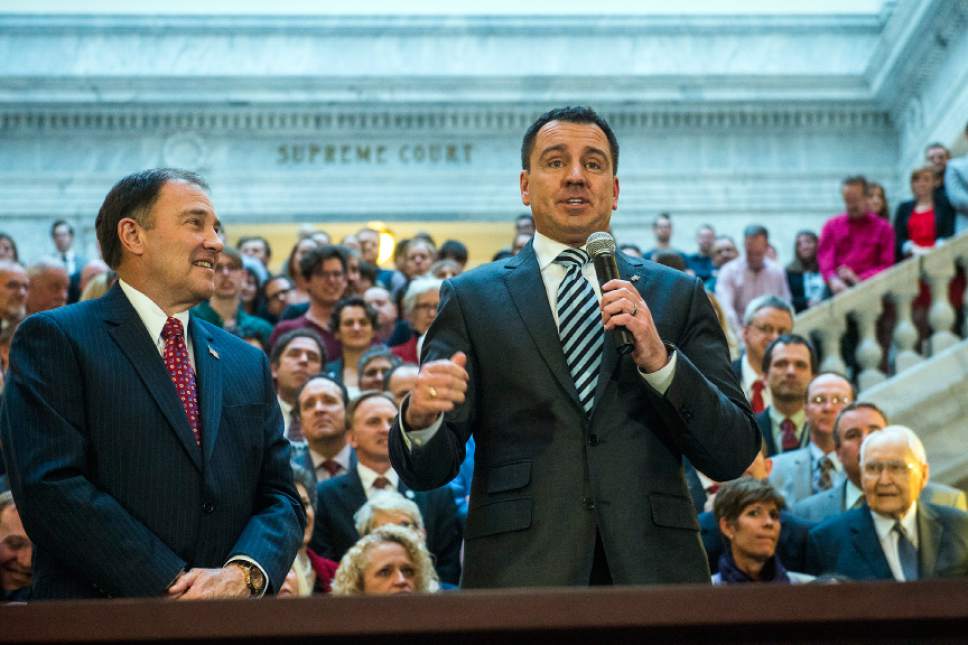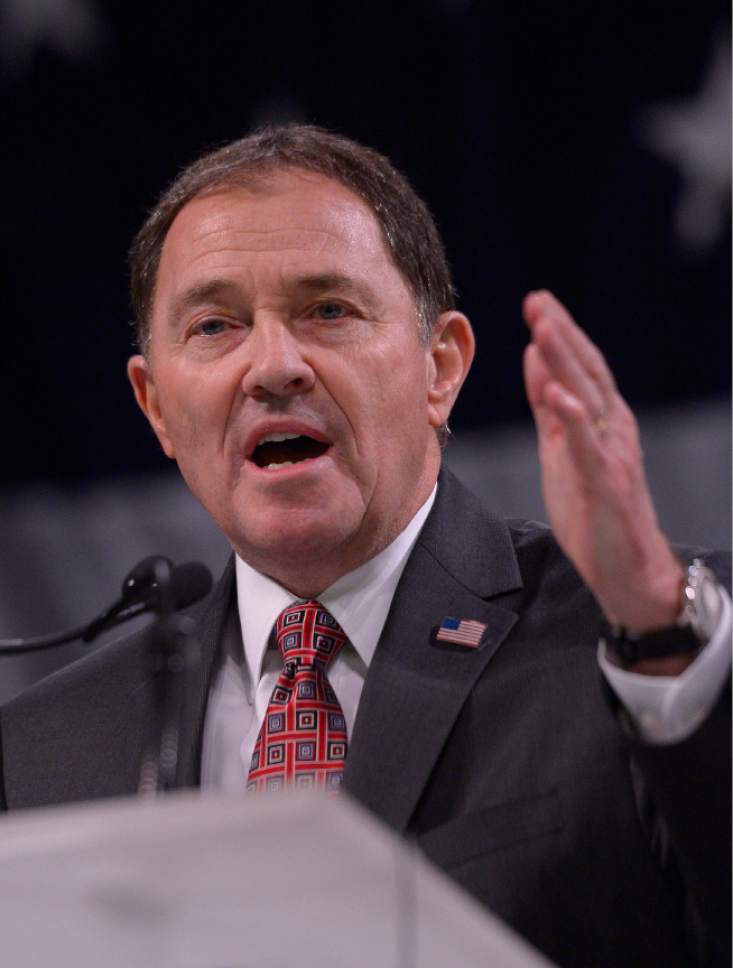This is an archived article that was published on sltrib.com in 2016, and information in the article may be outdated. It is provided only for personal research purposes and may not be reprinted.
Utah Gov. Gary Herbert is hoping lawmakers will join him in ending SAGE testing for high school students, if not when they convene next week, then perhaps in a second special session later this year.
On Tuesday, Herbert spokesman Jon Cox said the issue of SAGE — a year-end test taken by most Utah public school students — is on the top of many Utahns' minds.
By taking action now, rather than waiting for the 2017 legislative session, Cox said, testing mandates could be eliminated for the current and upcoming academic years.
"SAGE testing wouldn't have to be part of a May special session, but it would need to take place before students go back to school in the fall," Cox said. "A second special session later in the summer is something [Herbert] would consider."
Federal law requires that public school students complete year-end tests in grades three through eight and at least once during high school.
Utah uses its computer-based SAGE to test high school freshman, sophomores and juniors.
The state's testing period began last month, and most students will have partially or fully completed SAGE before the special session on May 18.
Herbert's suggestion of including SAGE in a special session was quickly met with critical statements from Jonathan Johnson, who is running against Herbert for the Republican gubernatorial nomination, and from Utah House Speaker Greg Hughes, R-Draper.
Hughes said legislative action on SAGE should not be rushed. And he implied that Herbert's actions were politically motivated after the governor failed to claim the Utah Republican Party's nomination at its recent state convention.
"The legislative branch has not been grafted into the governor's re-election campaign," Hughes said. "We do not take on a weighty issue like this without public hearings and necessary deliberation."
Johnson bested Herbert at the state convention, setting up a June primary, and regularly uses SAGE testing and Utah's use of the Common Core State Standards as an attack against Herbert.
In a prepared statement, Johnson also attributed the governor's new stance on SAGE to campaign tactics, saying the Utah House and Senate are not "playgrounds to be used to keep office."
"The governor has had six years to remedy the federal program Common Core that he helped author," Johnson said. "Utah voters will see this move by the governor as exactly what it is, a ploy to continue his 26-year political career."
The Common Core is a series of educational benchmarks in math and English that outline grade-level expectations from kindergarten up to high school graduation.
It is not a federal program, as Johnson described; it instead was voluntarily adopted by Utah and most states after incentives were offered by the U.S. Department of Education.
The National Governors Association was involved in the creation of the Common Core, and Herbert currently serves as chairman of the NGO. But Herbert was not chairman during the period the standards were created and had no direct authorship of the Common Core.
Cox said the requirement for high school juniors to take SAGE was eliminated this year with passage of HB200, which gives school districts the option of using either SAGE or ACT exams to comply with federal testing laws.
He said expanding that change to all high school students is a reasonable next step, and he dismissed the suggestion that Herbert was acting only out of concern for November's election.
"Unlike Washington, D.C., government in Utah doesn't close up shop during an election year," Cox said. "As problems arise, the governor will continue working to resolve them."
Twitter: @bjaminwood





